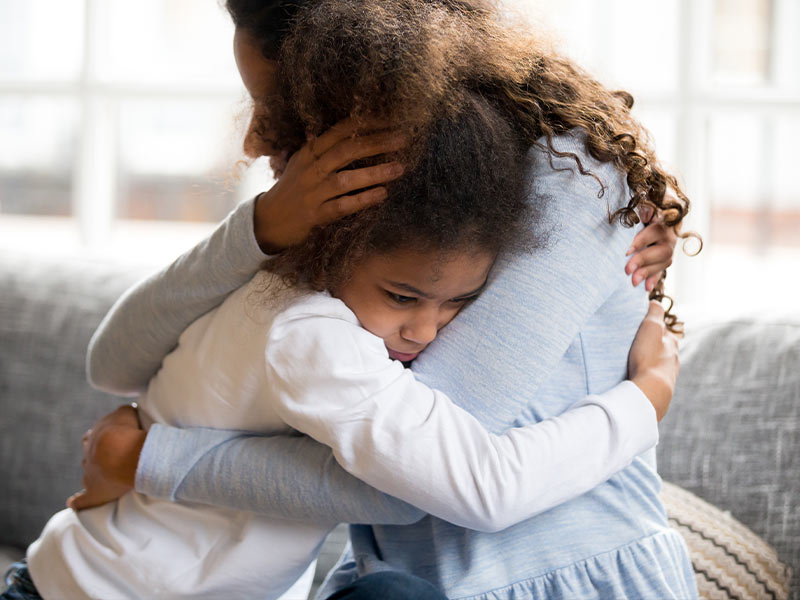UMMC experts offer coping tips for children, parents

Change is hard for all ages, and it can produce fear and anxiety in children and teens as well as adults.
As the COVID-19 pandemic is changing so many parts of daily life, acknowledging those feelings and taking steps to deal with them in a healthy way is vital, University of Mississippi Medical Center experts say.

“It is absolutely normal for children to have fears and worries during this pandemic,” said Dr. Scott Rodgers, chair of UMMC’s Department of Psychiatry and Human Behavior. “It is important to name those feelings and to deal with them in ways that are productive.”
UMMC’s Department of Psychiatry and Human Behavior and Children’s of Mississippi’s Center for Advancement of Youth offers these tips:
Acknowledge feelings: Talking about your feelings, whether fear, worry, loneliness or disappointment will lessen their power, Rodgers said. “Encourage children to acknowledge their feelings.” Writing or drawing how they feel can help children deal with their emotions.

Know signs of trouble: Excessive crying in children or acting out in teens could also be manifestations of anxiety and fear. If that occurs, talk with children about what they are feeling, said Dr. David Elkin, executive director of UMMC’s Center for Advancement of Youth.
“Tell them that you understand why they feel that way, but that we are going to follow the recommendations, wash our hands and take care of each other, and that we will get through this together.”

Keep routines: Constancy can help life during the pandemic feel more normal, and children find comfort in routines, said Dr. Susan Buttross, professor of child development and principal investigator of the Mississippi Thrive! Child Health Development Project at UMMC. “Get up in the morning, get dressed and eat breakfast. Have a schedule. Your child’s day does not need to be all free play or electronics.”
Keep kids connected: Social distancing does not have to mean social isolation. Encourage your older children and teens to video chat with friends.
Make lemonade out of lemons: Count your blessings, even in a time of crisis, Elkin said. “If you are home with children who are out of school, look at this as a time to spend more time with your family and care for each other. Play board games together, or bake cookies. Enjoy activities as a family.”
Get creative: If you find you have more time on your hands at home, put it to use. Tackle a home or gardening project, read a novel or learn to cook a new recipe.

Be a role model: Children and youths may have as many worries as adults. School closures, changes in routine, time away from friends and loss of rite-of-passage events such as proms can leave younger family members feeling anxious, said Dr. Philip Merideth, professor of psychiatry and director of the UMMC Division of Child Psychiatry. “For anyone in your care, such as children or the elderly, explain the facts to them in terms they can understand and involve them in making a plan for each day’s activities.”


